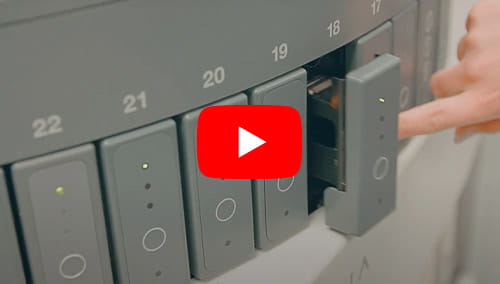CAR T-Cell Therapy for Relapsed/Refractory Leukemia
If you have B-cell acute lymphoblastic leukemia that has relapsed after remission or is resistant to treatment, you may be eligible for chimeric antigen receptor (CAR) T-cell therapy. CAR T-cell therapy frequently leads to remissions after other treatments fail.
Chronic lymphocytic leukemia (CLL), the most common form of leukemia, sometimes becomes refractory to medical treatment. Patients with refractory CLL can also benefit from CAR T-cell therapy.
How CAR T-Cell Therapy Works
CAR T-cell therapy works by extracting a type of white blood cell (T-cells) from a patient’s blood and modifying them in a lab to recognize and destroy cancer cells. The modified T-cells are injected into the patient’s body to seek out and kill cancer cells. This treatment is used after standard treatments, including chemotherapy, radiation and stem cell transplant, haven’t been effective.

Generating Cellular Therapies On-site at UH Seidman Cancer Center
Immunotherapy is the next frontier in cancer therapy. It uses the body’s own immune system to fight cancer. At University Hospitals Seidman Cancer Center, we are able to generate cellular therapies onsite, allowing us to get these cancer treatments to patients more quickly.Schedule an Appointment
Call 216-844-3951 to schedule an appointment with a doctor at UH Seidman Cancer Center that offers CAR T-cell therapy today.



